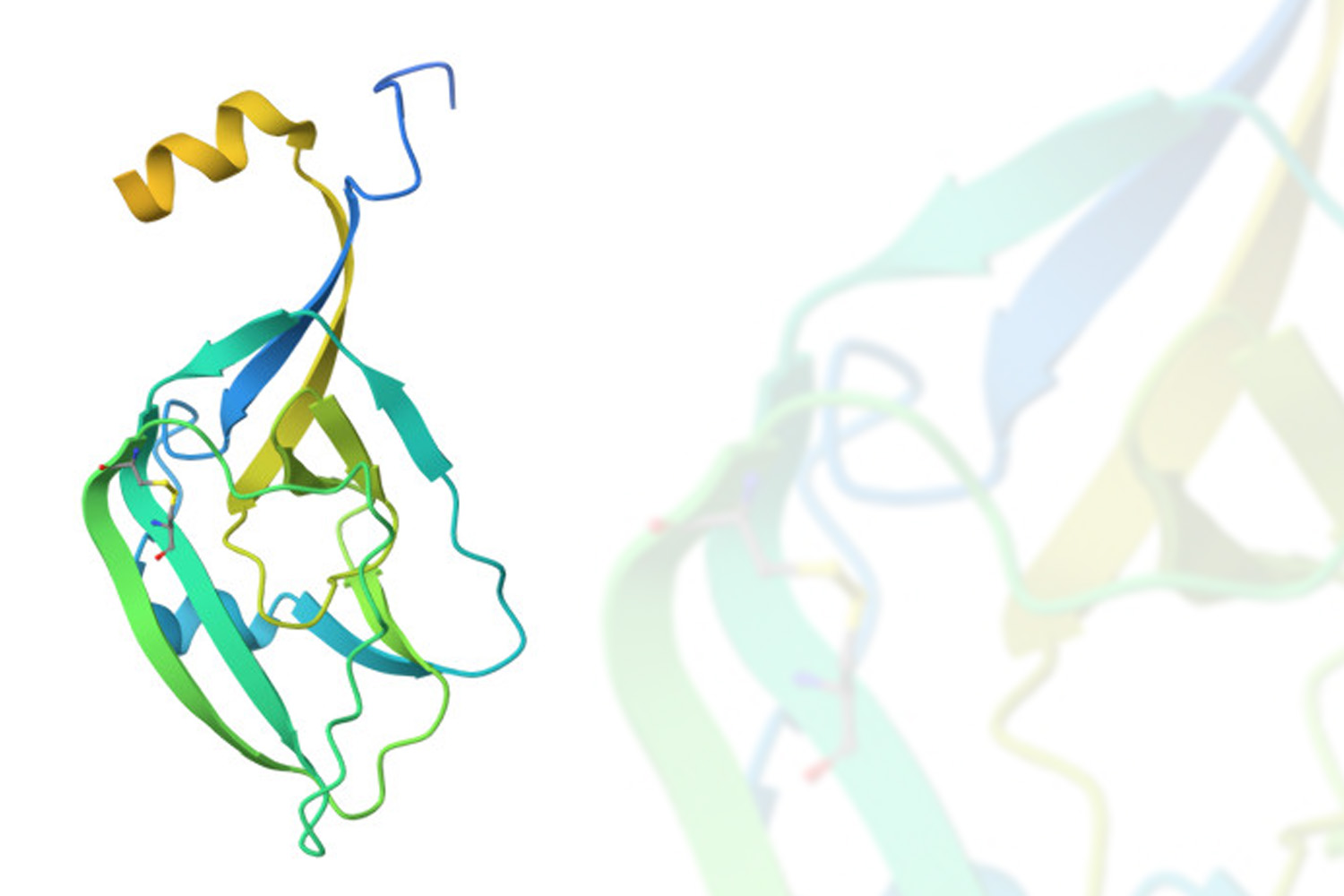Therapeutic Antibodies Against the Marburg Virus What is the Biotechnology at the TU Braunschweig doing against Marburg viruses?
Researchers at Technische Universität Braunschweig have developed a therapeutic agent for the treatment of Marburg virus infection, together with partners in France and the USA.

Structure of the glycoprotein (envelope protein) of the Marburg virus (Fig.: PDB data 5UQY). The protective anti-Marburg virus antibody binds to this protein.
On October 2, 2024, there was a reasonable suspicion that two medical students returning from Rwanda had been infected with the Marburg virus. Fortunately, a Marburg virus infection was not confirmed one day later. The Marburg virus is a highly contagious pathogen for humans that, like the Ebola virus, belongs to the family of filamentous viruses (filoviruses). Infections with the Marburg virus very often leads to fatal hemorrhagic fever, for which there is currently no approved therapeutic agent. The virus was first detected in 1967 in employees of a Marburg laboratory after they were infected with tissue samples from green monkeys.
Together with partners in France and the USA a few years ago, the biotechnology department of the TU Braunschweig developed the first antibody whose protective administration in an animal model provided 100% protection against infection with wild-type Marburg virus. This antibody is therefore a potential drug against the consequences of a Marburg virus infection in humans.
Prof. Dr. Michael Hust, head of the Department of Medical Biotechnology and co-developer of the anti-Marburg virus antibody: “We were lucky that the students were not infected with the Marburg virus after all. But we should also be able to have a drug available for such cases. Therefore, we should produce several grams of our antibody under the quality conditions for therapeutics (GMP), store it centrally, e.g. at the Bernhard-Nocht Institute for Tropical Medicine in Hamburg, in order to have this antibody available as an ’emergency drug’.”
“In biotechnology, we have successfully developed numerous potentially therapeutic antibodies against numerous infectious diseases in the last two decades. We were able to bring our antibody COR-101 for the treatment of COVID-19 into clinical testing in a record time,” confirms Prof. Dr. Stefan Dübel, head of the Biotechnology department. Dr. Federico Bertoglio, Senior Scientist in the West Nile Virus project, adds: “We also need vaccines and therapeutics for these re-emerging viral diseases. Therefore, building on the experiences of the last few years, we are working on potential drugs against various viruses, currently for example against the West Nile virus. We benefit from the experiences gained from the Marburg virus project.”
